Little MO has been yelped and rated before, but it has changed since its last review. Yes, it’s still a neighborhood fixture, serving Asian fusion to the Bushwick/Ridgewood community for several years. It’s the most dining-centric of the “Little” family, which also includes Little Skips, Little Skips East, and Baby Skips. All are bound together by their figurehead and common partner, Linda Thach — who’s been doing this very well for a long time.
But what’s changed is under the hood, or rather, back in the kitchen, up on the chalkboard menu overhead, between the people behind the counter — all of which ends up on the plate. Little MAMA, Thach’s newest enterprise, grew from within Little MO and is poised to keep growing.
Starting Little, becoming something MO
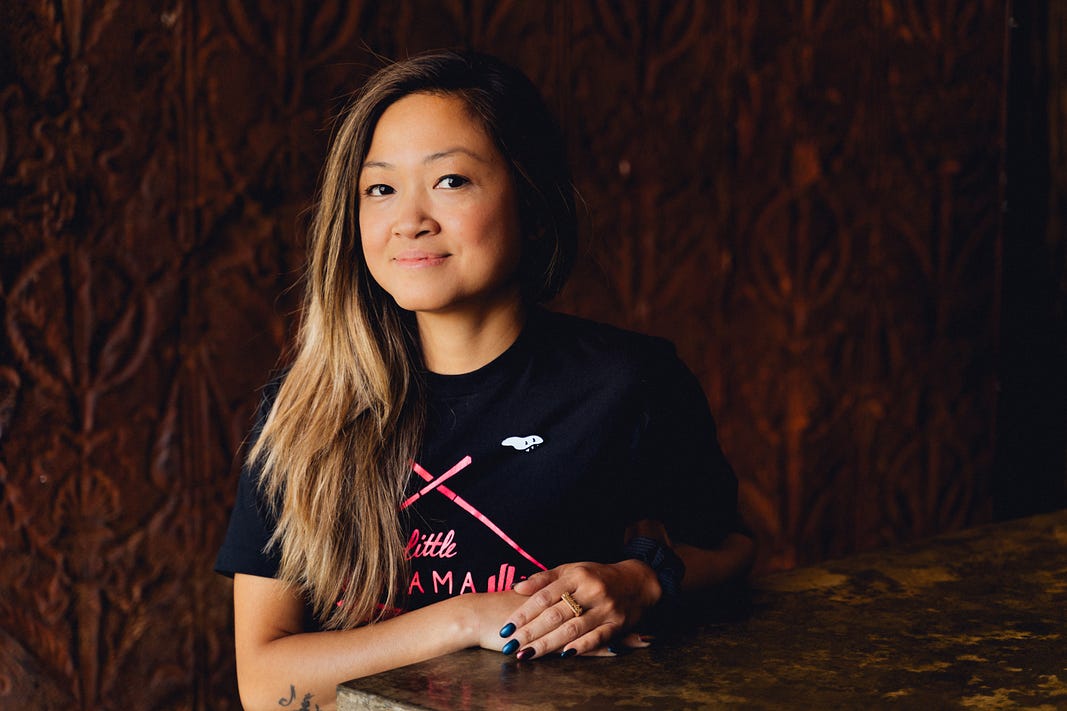
The story of Little MO is one of finding a capacity for mentorship: Thach opened Little Skips almost 10 years ago, working at least six days a week for the first few years. By virtue of the trial-by-fire of opening the first coffeeshop in the neighborhood, she found herself in a leadership role larger than the decision-making responsibilities of an owner/operator.
“It was that natural shift where people are coming to you and asking you questions,” she reflects on her days opening and running Little Skips. “And I realized it makes me happy to share my knowledge because I thought if I had someone like me back then when I started, I probably would not have made as many mistakes.” Such generosity is a breath of fresh air in an industry of knife’s-edge profit margins, grueling hours, and plenty of literal and figurative scarring. But her intuitive care-taking nature shone best when she started getting questions from her staff about entrepreneurship: “I care about everyone that works for me, so if they’re expressing the interest in telling me ‘I’d like to have my own business one day,’ I’m like ‘oh my god, then let’s do it. let’s teach you.’ because I can and I want to show people that.”
Little Skips was starting to run out of space for itself; the morning rush became a line hanging out the front door, overwhelming the staff while customers waited in the snow for a thoughtful cup of coffee or morning nibble. A Latino dance hall up the street was up for rent, but Thach couldn’t afford to make the whole space a coffeeshop.
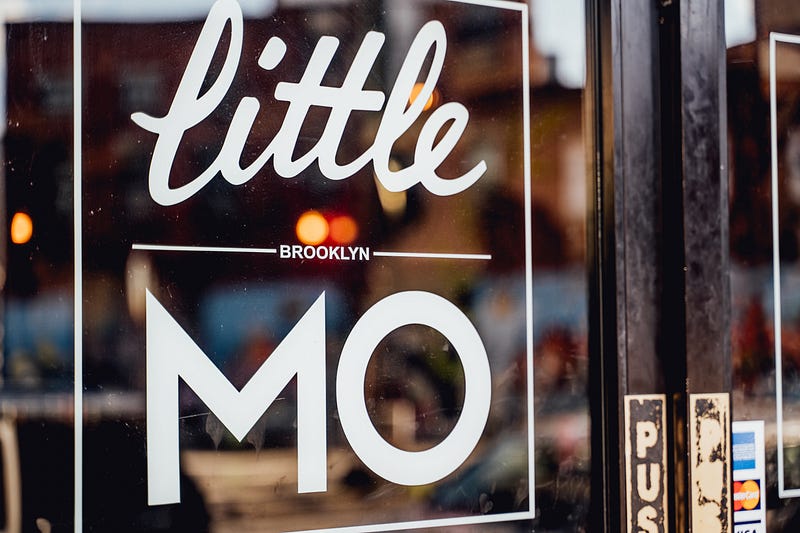
Then the solution presented itself; a regular at Skips approached her and asked if she would open a restaurant with him. He wasn’t in the industry — he was just a regular who saw that she took good care of her people, and that’s what he needed in a partner: a qualified operator and patient teacher. He offered the majority of the funding if she would open the restaurant with him and show him how to run it. It was her first foray into mentorship, and it has endured as a lasting partnership. She signed the lease on the dance hall and divided the space in half; the left side became her second coffeeshop, Baby Skips, and the right side, with its full kitchen, would become Little MO. She was starting two new food establishments simultaneously, but this time she understood her compassion and people skills as strengths.
The right people
Jump ahead six months, just a month before opening: Linda suddenly had to replace a chef that nodded out during a friends and family night. At a family wedding in California, she re-met her cousin Julie, who was running a kitchen in a tiny town in Oregon. Linda offered her a chance at serving up Southeast Asian food in Brooklyn, and Julie called a week later to accept. She showed up shortly thereafter and took charge of the kitchen.
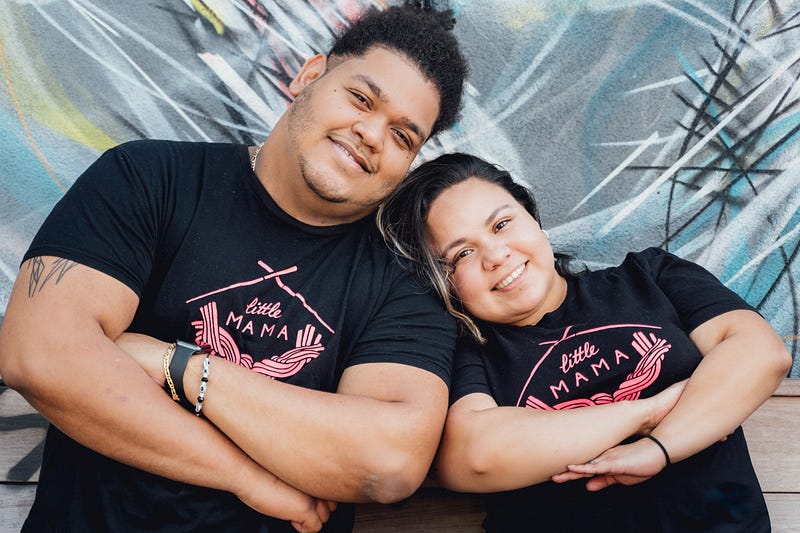
One year later, one of the line cooks referred Nicoll Celis for a prep cook spot at Little MO. The then 19 year old had recently emigrated from Barranquilla, Colombia, with a culinary degree in hand. She had barely any exposure to any kind of Asian cuisine and had six months of English, but walked in and got to work. Nicoll showed an entrepreneurial spirit almost immediately upon showing up. “She always worked hard, but she was always asking questions, too,” Linda remembers. Nicoll stepped up within a month, always taking on more responsibility with a list of curiosities to follow. When another spot opened up on the line, her boyfriend Carlos (her culinary school classmate), left his post at sushi restaurant in Manhattan and took a job working alongside his girlfriend. Their inquiries doubled accordingly: “They wanted to know about menu items, Asian culture, Asian recipes. They didn’t want to just make the recipe, they took it upon themselves to get the books and learn and show me.”
It’s from Julie and Linda that Nicoll and Carlos learned not only about the palate of Southeast Asian cooking, but also about ingredients that they hadn’t known before — from kochujang to kim-chee. Nicoll started focusing on the nuts and bolts of daily operations, while Carlos committed to researching recipes and learning the cuisine, its components and flavors, what made it different from the foods he knew. They took a day off to get married, then came back to work the next day.
Opportunity in transition
A year passed. To much controversy in the neighborhood, the M train bridge renovation forced the block’s evacuation from July 1 of last year. Baby Skips and Little MO had to board up for a few months. The time had also come for Julie to go her own way. Linda turned to Nicoll, who everyone in the kitchen referred to as “Little Mama” after her two-and-a-half year tenure learning everything she could, because she had made it her business to know.
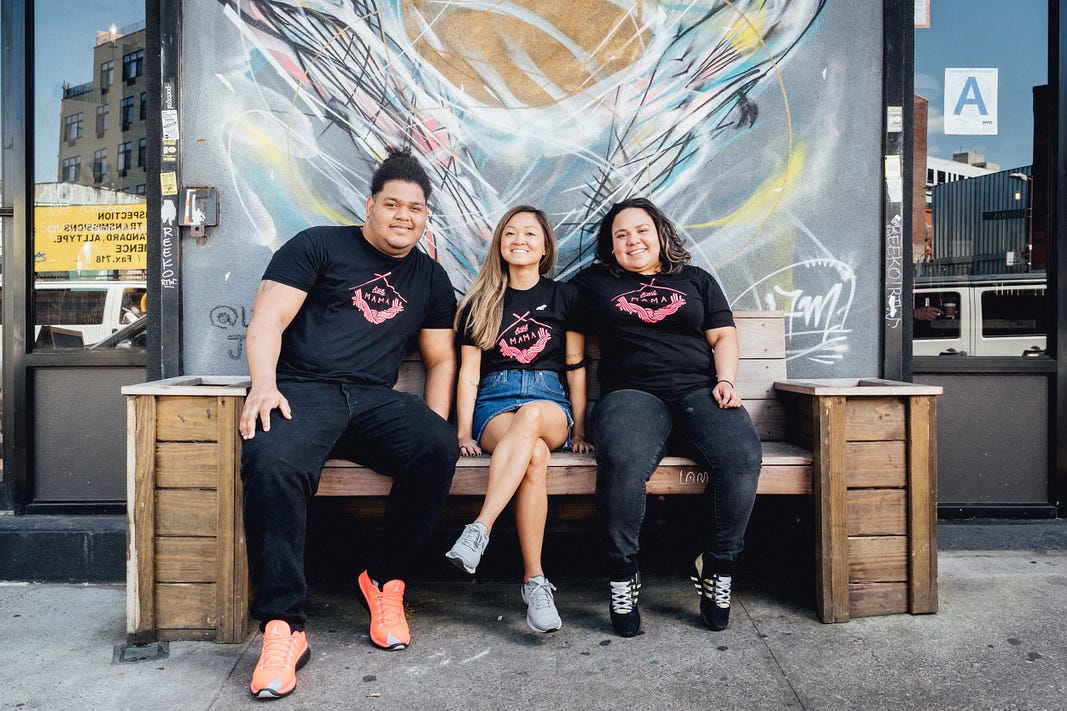
Little MAMA is the result of an effort on Linda’s part to show anyone with the impetus to start their own business how to do it, which is precisely the opportunity that she afforded Nicoll and Carlos. It’s a lesson that immigration teaches someone quickly, and Linda has definitely learned: “If you say you want something, you can have it. You just have to realize that you can make it happen, that it’s only up to you. You can’t say you want something and then just wait. You have to get it yourself.”
And so the business locked doors for three months. Cooks and counter people scattered, biding time elsewhere. All the while, Linda sat with Nicoll and Carlos, showing them the business logic of spreadsheets and bank statements, the feat of organization and paperwork, a diplomatic touch with emails and phone calls — certainly starting out with some hands on instruction, but quickly transitioning to watching from the background or in CC, advising after the fact. Gus, at the nearby L’imprimerie, extended an offer to pop up at his bakery, and Nicoll and Carlos jumped at the opportunity. Little MAMA was officially underway.
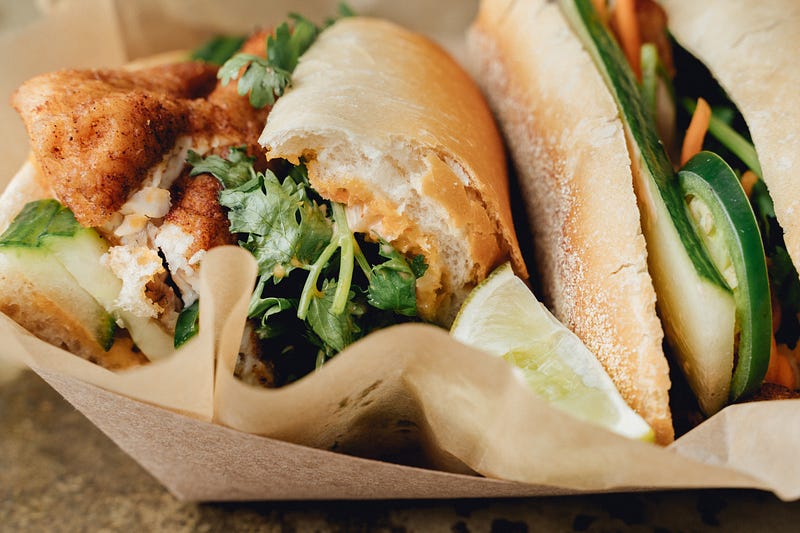
They re-opened on October 6th, just over three months later. The sign says Little MO, but Little MAMA makes it run. They almost immediately put their own recipes into rotation. Their menu is Asian-fusion, the hyphenation almost serving as a qualifier, to honor the idea that they can take elements from elsewhere in their arsenal and make something new: The traditional banh-mi subbing out paté for a pulled pork or a bulgogi beef. Or fried catfish, always with plenty of carrot, daikon, cilantro, and spicy mayo. At one point Linda came to Carlos, hazily suggesting that a particular kind of salad would make a fresh addition to the menu. She points to the results on my plate, still impressed: “Carlos made that [salad] on his own. He went off and looked it up himself and made it for me. I didn’t have to change it. And it’s perfect. This is exactly what I ate growing up.”
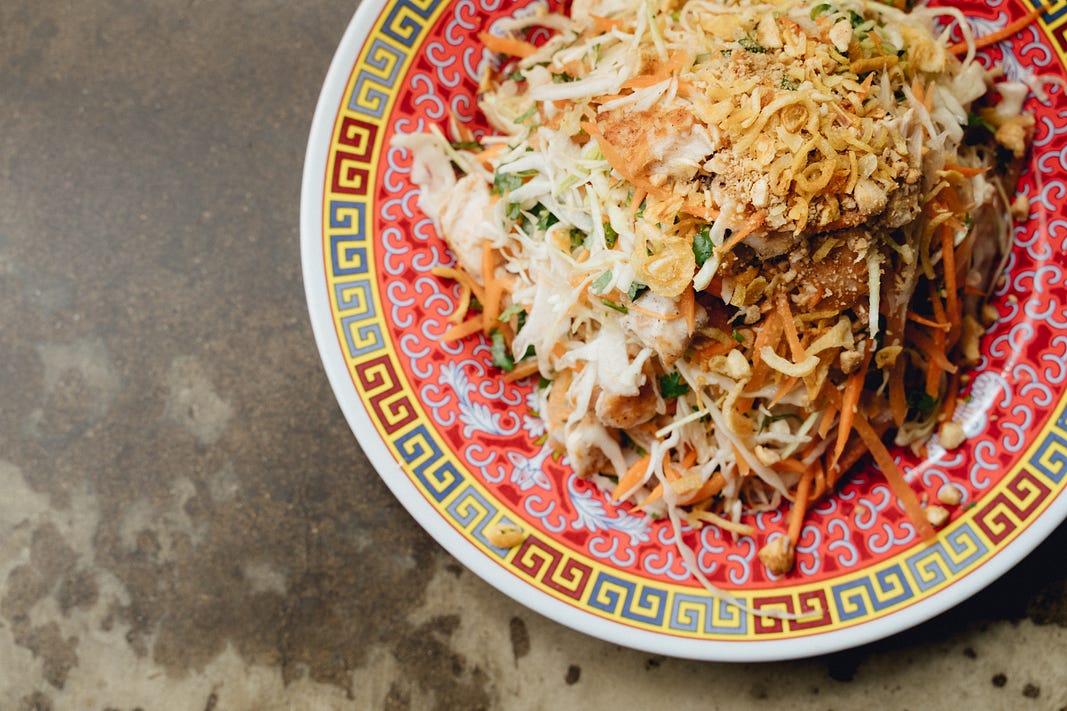
Little MAMA is not to be doubted — while running the restaurant, they’ve also been providing catering (purely a Little MAMA endeavor). Even while maintaining regular service in Brooklyn they found a way to feed 1500 people. For three days. In the Catskills. They look tired even referring to the hazy memory of the time, and are still unsure exactly how they made it out in one piece.
Carlos turns 30 this month. Nicoll is a stunning 23 years old, rapidly approaching the year anniversary of running the restaurant that she showed up to help prep three and a half years earlier. “She’s a little of me,” Linda says of her now. She can sit back and marvel at how well that transition has gone, how much Nicoll and Carlos have taken hold the opportunity: “They really take care of everything.”
Family business makes business family
So what’s next for Little MAMA? Nicoll and Carlos are looking to create their own sit-down restaurant, with their own menu, synthesizing what they’ve done here with their Colombian roots — a natural progression in their culinary development with a totally novel set of flavors.
Linda has also inspired Nicoll to mentor: “We want Little MAMA to be a real restaurant so that we can teach more people, and we can be a family. So that I can teach other people the way that she [Linda] taught me.” Carlos interjects: “The problem is that in most of [the restaurant industry], you go to work and you decide that you don’t care about nothing, that you only do your work. With Little MAMA, the whole point is that it’s your work, it’s your job, it’s your people.”
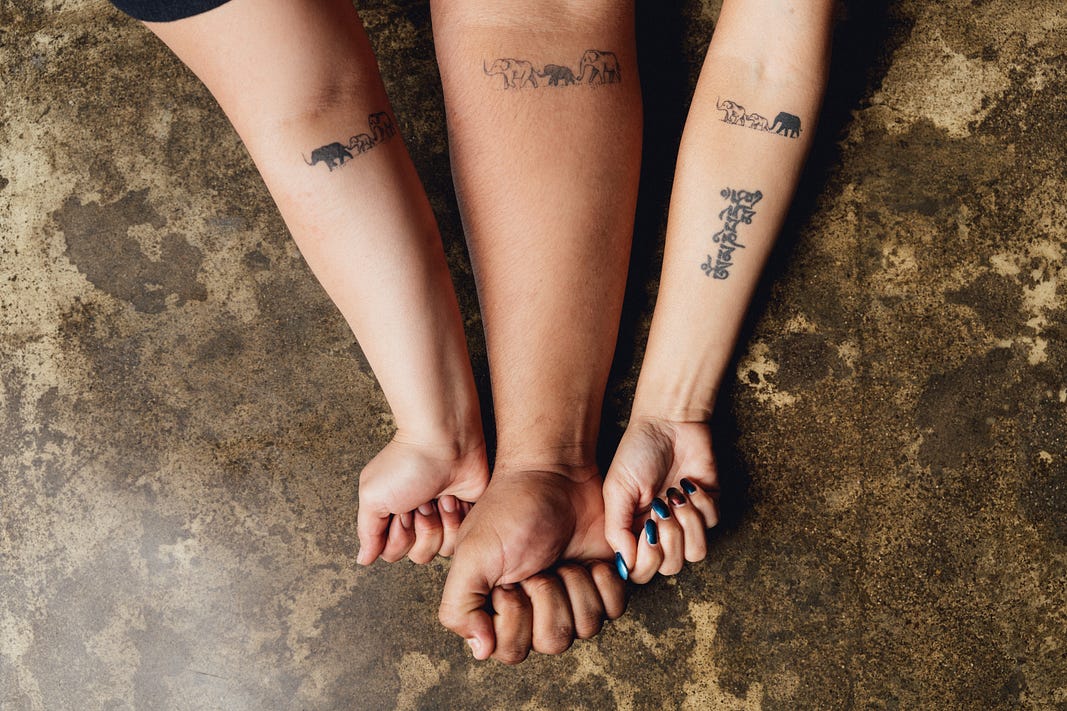
Nicoll has a tattoo on the inside of her right arm, just below her elbow; the outline of a mama elephant, a baby elephant, and a papa elephant. The mama elephant is shaded in. Linda and Carlos have the same tattoos in the exact same place, but on Linda’s arm the papa elephant is shaded in. On Carlos, it’s the baby — “I’m the little one,” he declared at the tattoo parlor when they all showed up together. It’s only once they start talking about it they register just one moment to appreciate the story that the three of them are telling, that they have come through a huge transformation with, and because of, each other. They smile and there’s a trace of a tear.
Nicoll understands that now that she knows how to run a food business, she has to engage the community she’s working in. “I’ve only been here four years. I know a lot of business owners and they know me, but now I want to meet other people in the community, to find out how to help them. I’m doing what I can. I’m scared. I’m trying.” The hardest part for her now that she keeps the engine running is getting people outside of the business to know her, to know what she’s capable of. “I have to get better with people,” she says shortly after blowing a kiss to a friend that walks past the restaurant.
So: go in. Ask for “little mama.” And definitely have that salad.